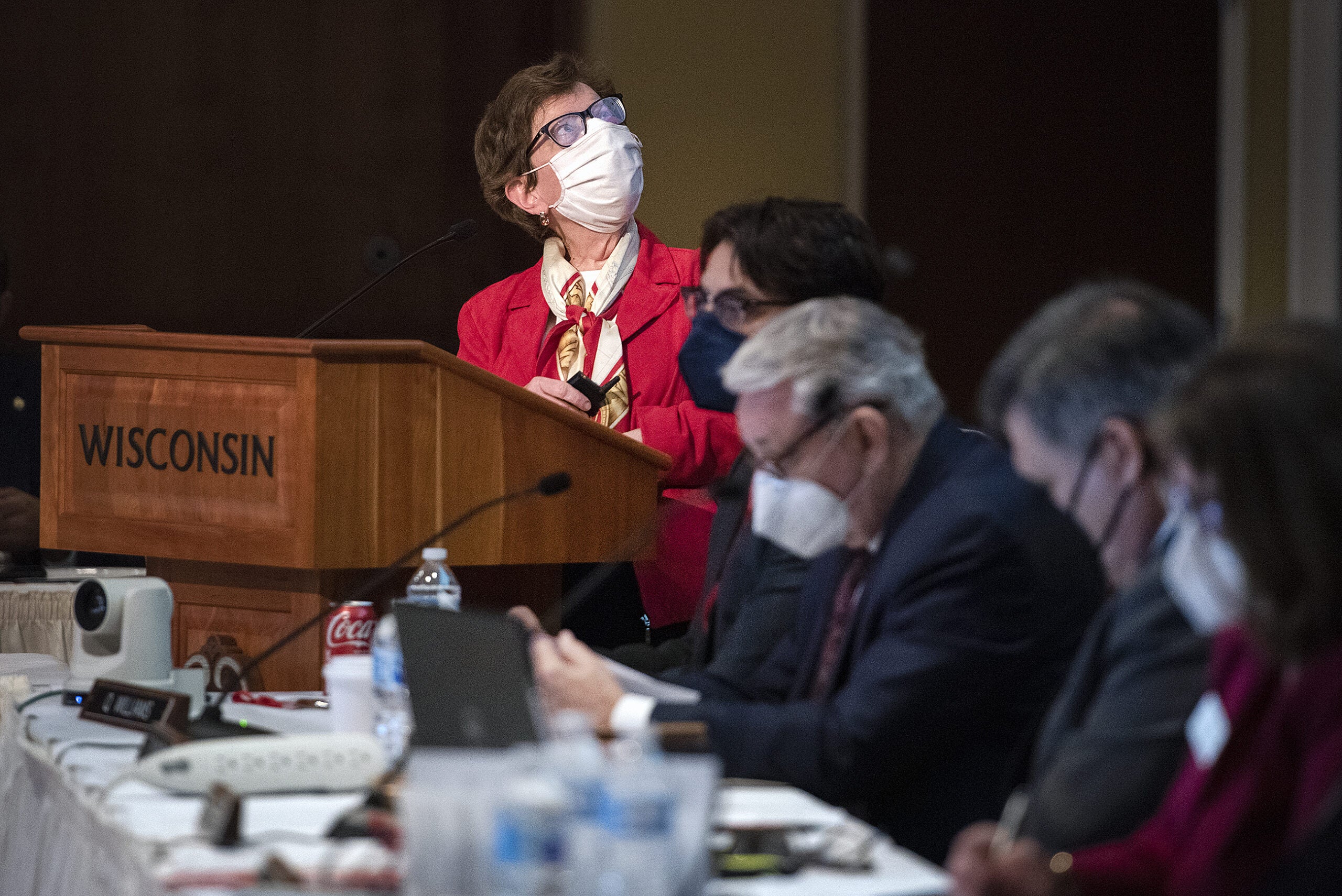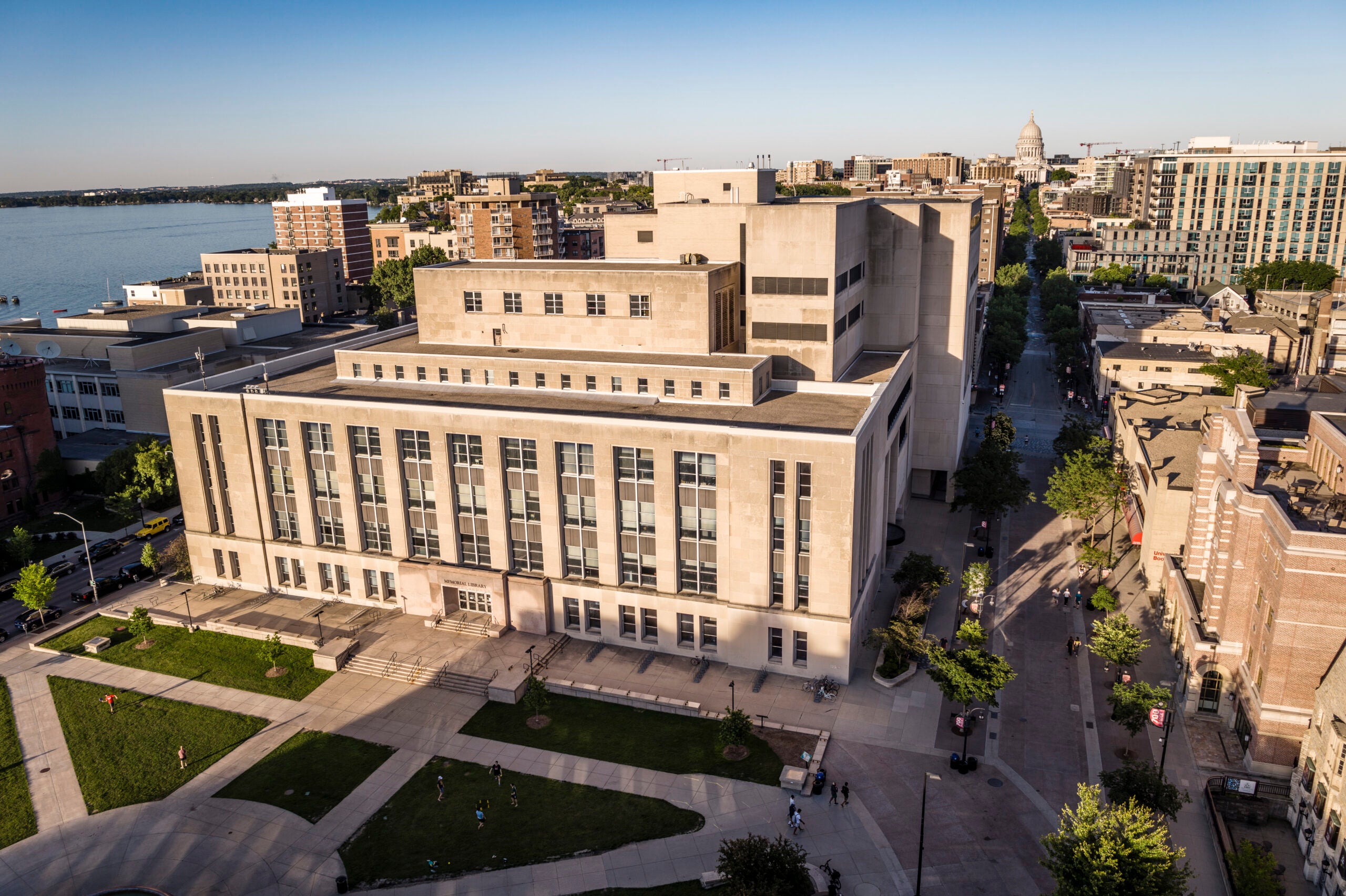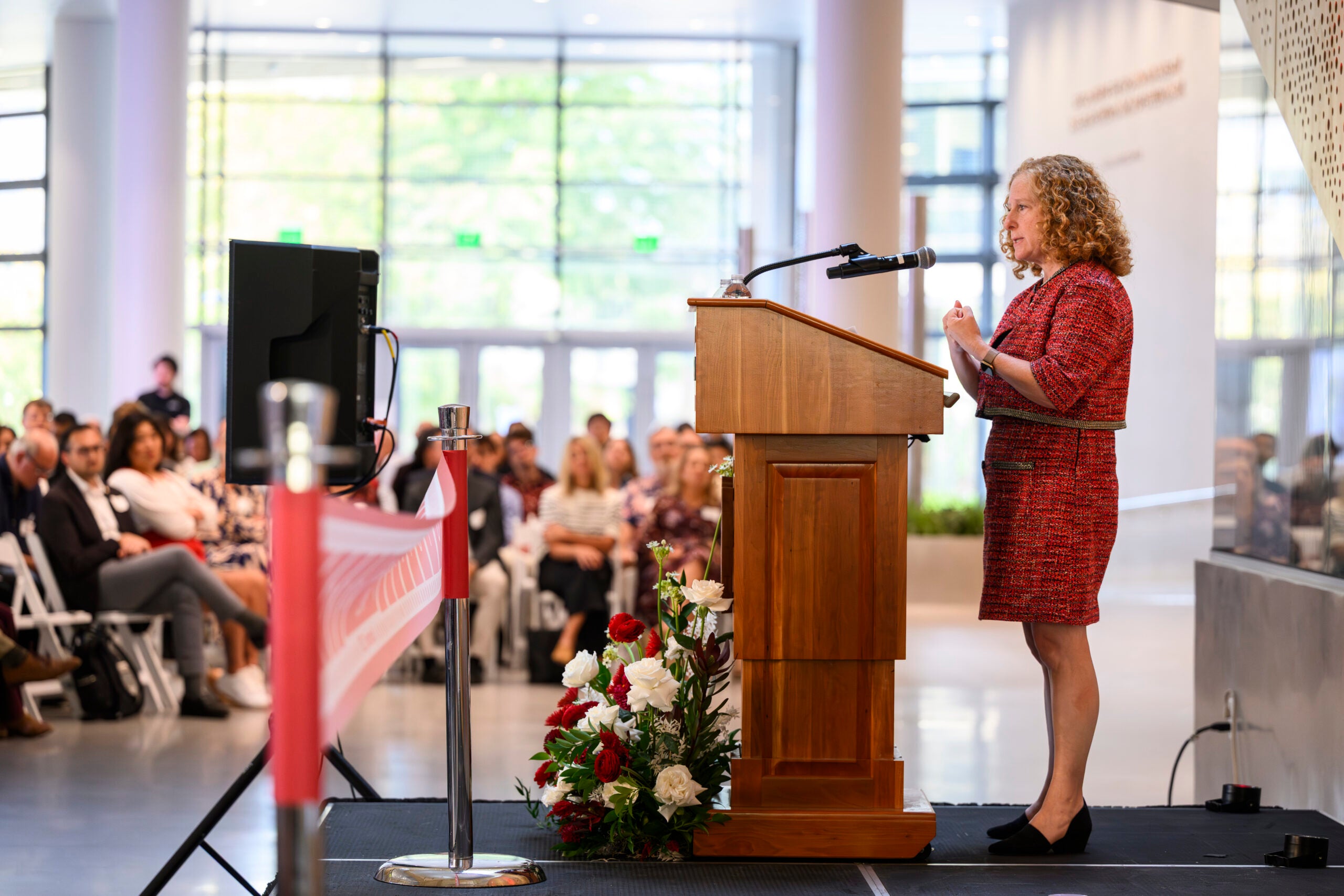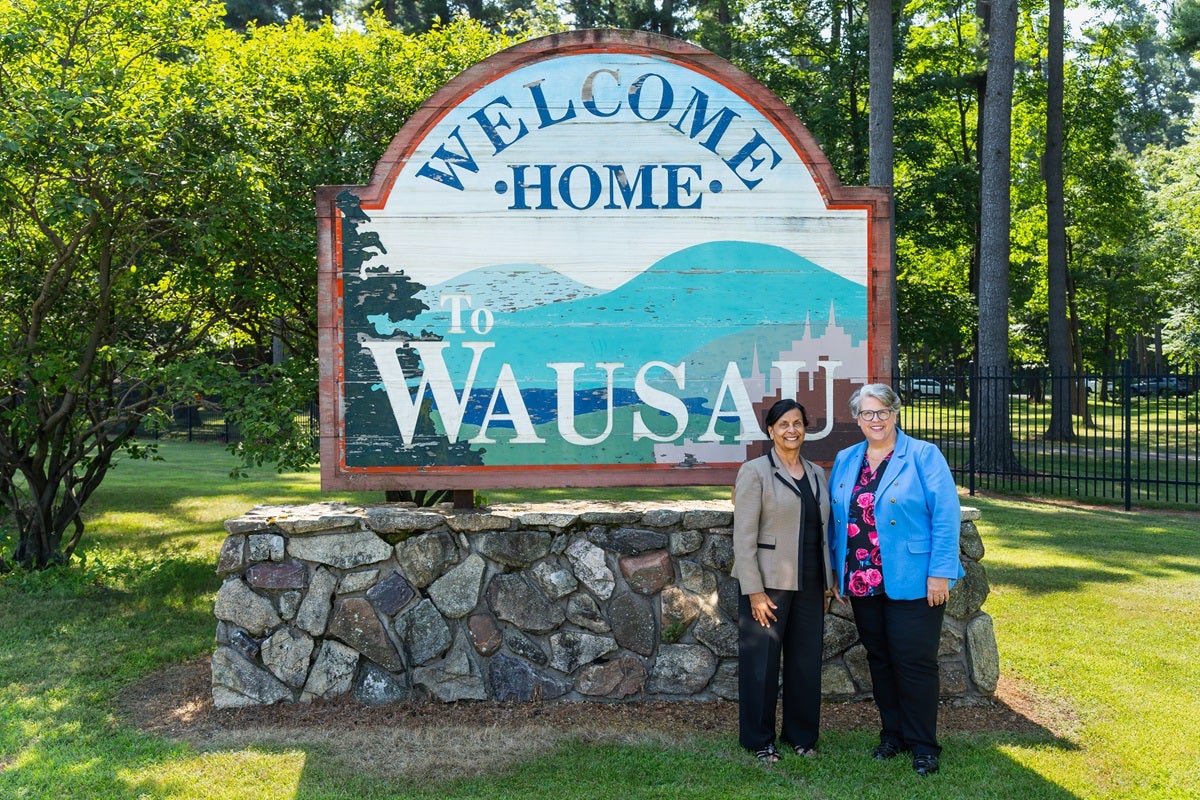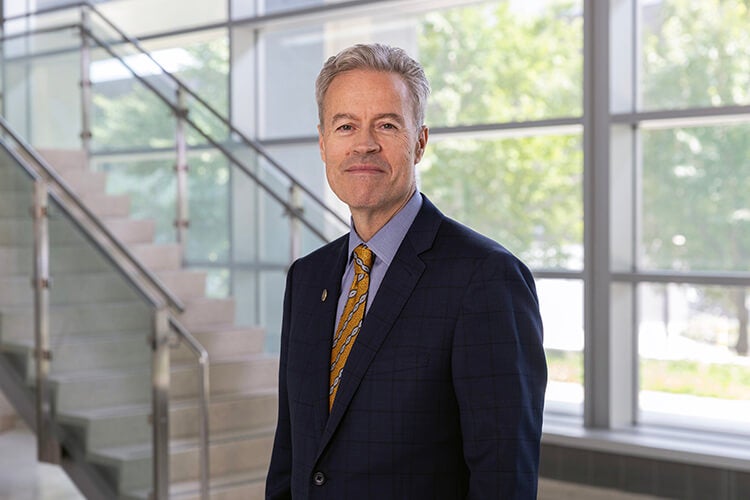Outgoing University of Wisconsin-Madison Chancellor Rebecca Blank said after being in “deep trouble” in 2015, the university today is in “very strong shape” when it comes to attracting and retaining faculty.
Policy changes through the state Legislature on tenure from around that time left university officials concerned about other schools poaching UW-Madison’s top professors. But Blank said the UW System Board of Regents stepped in to protect tenure and the university has since raised some faculty salaries.
“We’ve generated the revenue we need to keep our faculty salaries at the competitive levels they need to be,” she said. “It wasn’t true when I came in. We were at the bottom of our peers, and we’re now much closer to the middle of our peers, which is where we need to be.”
News with a little more humanity
WPR’s “Wisconsin Today” newsletter keeps you connected to the state you love without feeling overwhelmed. No paywall. No agenda. No corporate filter.
Blank is leaving after this semester to be the president at Northwestern University. She came to Madison in 2013, making her one of the longest serving chancellors in recent UW-Madison history.
She joined WPR’s “The Morning Show” on Thursday to discuss that as well as furloughs at the university and investigating hostile workplace environments.
This interview was lightly edited for brevity and clarity.
Kate Archer Kent: You saw the state Legislature cut funding for the university and impose a tuition freeze. Without strong political support, what choices will the university have to make? What is that like?
Rebecca Blank: There is nothing unique about Wisconsin. Virtually all public universities in the U.S. have faced real funding challenges as state Legislatures have moved on to other priorities. So, like all of these schools in the country, it’s increasingly on us to generate the investment income that we need in order to hire the best faculty, provide the best educational programing (and) do the things that we want to do as a university. That’s why it’s going to take some degree of entrepreneurship and creativity to be thinking about how the university can generate its own revenues.
Now having said that, without any state money, we would be in deep trouble. Any chancellor is going to have to work closely with the UW System president to fight for as much state funding as possible to make sure that particularly the students from the state of Wisconsin have access to a first-class university education.
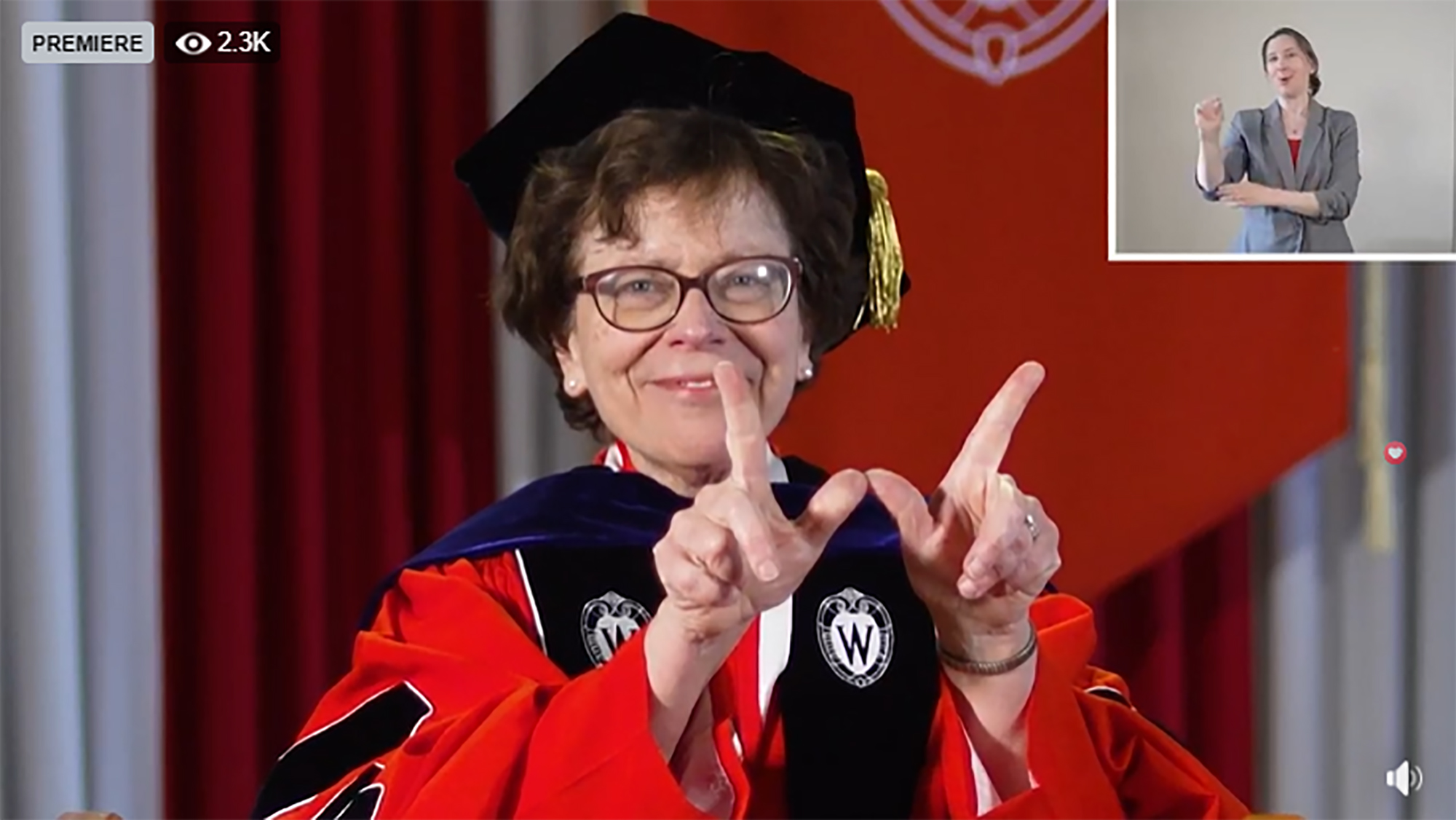
KAK: Did the detachment of a private university, such as Northwestern, from state politics influence your decision to leave?
RB: I have enjoyed working with the Wisconsin Legislature. We’ve had our differences. We’ve had our challenges. That’s not a reason by itself to leave this job. I’ve been in the job nine years, but I think it’s time to let someone else take over leadership. I’m very interested in going to a different university, learn(ing) different things. I’m very interested in comparing a private university to a public university.
I’m sure there will be a number of things that are very, very similar. There will be some new things to learn at Northwestern. There will be some things here at Madison that I don’t have to do there. I certainly am going to be spending less time with the Legislature or with the governor, I suspect. But there will be other challenges instead.
KAK: Between 2015 and 2017 we talked about how you were concerned about faculty being poached by other major universities. Is UW-Madison falling behind others in attracting and retaining top people?
RB: Not at all, actually. In 2015, we were in deep trouble. That was when the state Legislature basically abolished our tenure statutes that were written into state law and said to the Board of Regents, “You figure out what you want to do.” Now the regents, to their credit, wrote tenure rules that were the equivalent of every one of our major peers. So, while people were very worried about what would happen, it ended up in a very good place.
READ MORE: UW Regents approve tenure changes (from 2016)
But the result in that year was that everyone around the country having heard that Wisconsin had gotten rid of tenure — not true — came to raid our faculty … Almost 20 percent of our faculty over those two years had outside offers. We could have been in great trouble had we lost more of them.
In the years since then, that has stopped entirely. We’ve had virtually no outside offers. Those that we’ve had, we’ve won well over 80 percent of them. So, we’re in very strong shape — both (for) attracting and retaining our faculty right now. Some of that is because we’ve generated the revenue we need to keep our faculty salaries at the competitive levels they need to be at. That wasn’t true when I came in. We were at the bottom of our peers, and we’re now much closer to the middle of our peers, which is where we need to be.
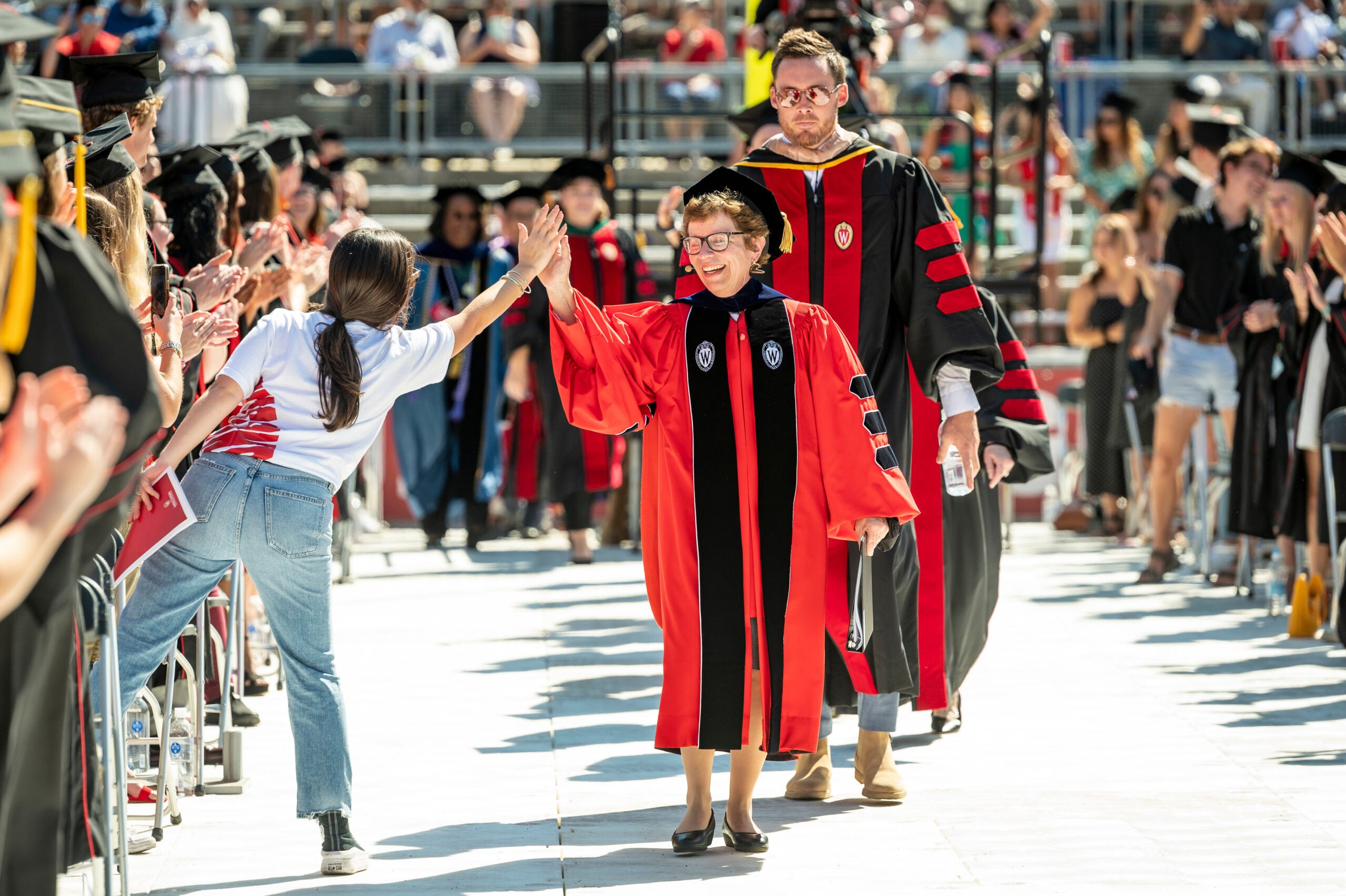
KAK: You told employees a year ago that furloughs saved the university more than $30 million. If you could do it over again, would you have imposed those furloughs?
RB: I don’t think we had a choice in the pandemic, given how quickly some of our sources of revenue fell and how very uncertain the future was for the next year. I’m very glad that we imposed the furloughs the way we did, which was to say they were not equally imposed.
Our higher wage employees took more furlough days than our lower wage employees. But at the point that we made that decision, which was two years ago when everything was shut down, we had no idea when we were going to reopen or what was going to be happening over the next year. We just had to be responsible. We had to be cautious about our expenditures.
KAK: The Wisconsin State Journal did a series on workplace bullying and hostile environments on campus. What are you doing to create an atmosphere where people are comfortable to report toxic behaviors?
RB: Let me be clear: We were one of the very first universities to pass a policy, making it basically a disciplinary action to provide bullying or harassing behavior. We did that in 2016 (or) 2017. We’ve been implementing that policy. We continue to be the strongest policy in the Big Ten and among relatively few universities who have these policies.
We are training faculty. We are training graduate students. We are training staff on this policy. Every case that has come to us since this policy has been in place, we have investigated. And if we have found through the investigation that the charges were correct, we have taken action.
Now does that solve the problem? There are bad actors. We are very large university. We have 22,000 faculty and staff. We need to hear about the problems before we can take action, and we don’t always hear about the problems. That’s one reason why we are trying to provide training and say to people: Here’s where you go. When you have an issue, here’s what you have to do. Let us know.
Editor’s note: Wisconsin Public Radio is a service of the University of Wisconsin-Madison and the Wisconsin Educational Communications Board.
Wisconsin Public Radio, © Copyright 2025, Board of Regents of the University of Wisconsin System and Wisconsin Educational Communications Board.

